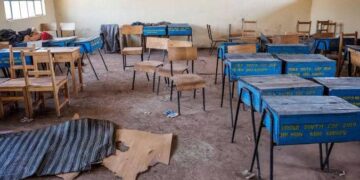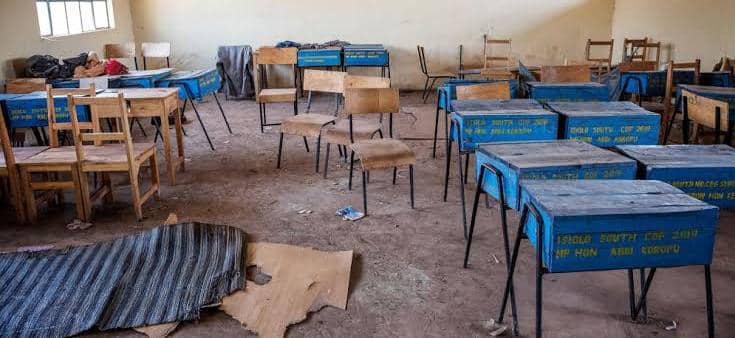By Enyichukwu Enemanna
Kenyan authorities have announced the immediate closure of all primary and secondary day schools located in Nairobi, Mombasa and Kisumu cities, with effect from July 19, 2023, as protests called by the opposition enters third day.
The move is to ensure the safety of the pupils, Interior Cabinet Secretary Kithure Kindiki said in a statement on Tuesday.
“As a precautionary measure to ensure the safety of school children, it has been decided that all day primary and secondary schools within the cities of Nairobi and Mombasa will be closed tomorrow (Wednesday, 19 July),” Prof. Kindiki said in a statemnent.
Prof Kindiki said the government had received credible security intelligence that criminal elements were planning to unleash terror and violence on the public by engaging in armed skirmishes with security agencies around certain schools in Nairobi and Mombasa.
He said that the Ministry of Education will announce the resumption of academic activities in the institutions upon the conclusion of assessment of security situation.
The announcement comes after the opposition announced the commencement of ‘Sufuria Movement’ on July 19, 2023, to protest the high cost of living.
“At Midday tomorrow we ask Kenyans to come out of their homes and bang sufurias, pots and pans to signify lack of food,” Narc-Kenya leader Martha Karua said.
Ms Karua further said that the protesters will converge at Joseph Kangethe, Kamukunji and Jacaranda grounds.
Two rounds of protests earlier this month degenerated into violence when police fired tear gas, and in some cases live rounds, at the crowds. At least 15 people were killed and hundreds arrested.
The opposition has also kicked against tax hikes approved last month by the government of President William Ruto, who was elected last August.
During campaigns, he pledged to champion the interests of the poor, but has seen the price of basic commodities increase under his administration.
The government says the fuel and housing levies, which are expected to raise an extra 200 billion shillings ($1.4 billion) a year, are needed to help deal with growing debt repayments and to fund job-creation initiatives.




































